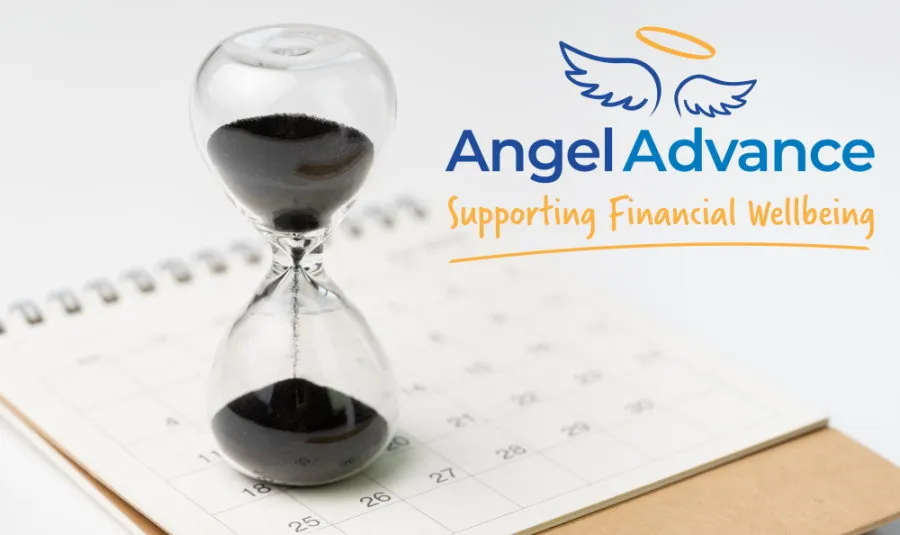January always feels like the longest month of the year. With Christmas out of the way and the New Year in full swing, it feels impossible to make the early December pay last a full month. The temptation to get into debt to help keep yourself afloat during January can be difficult to dodge. We’ve compiled a list of useful tips to make surviving until payday & avoiding payday loans and other debt that little bit easier!
Tip 1 – Budget, budget, budget
Knowing what you have coming in and out is vital when establishing how you’re going to survive until the next payday. We know that looking at your bank balance can be daunting, but it’s the first step towards survival!
Making a list of your essential costs, such as bills, groceries and fuel, then subtracting it from your income will offer you a rough disposable income – this is your money to keep aside. You could then divide this by however many weeks you have until payday. Read our budgeting tips here.
If you think making a written list could be too time consuming, take a look at the Money Advice Service’s Budget Planner.
 Tip 2 – Avoid further borrowing
Tip 2 – Avoid further borrowing
Taking out credit, such as a payday loans, using an overdraft, buy now pay later schemes such as Klarna, credit cards and catalogues is a bad idea. Although it may seem like a quick fix, recovering from the cost of them could take all year – being frugal in January is essential.
Payday loans are usually easily accessible, but the extreme interest rates that come with them mean you could pay back more than double you originally borrowed. If you must borrow in January, do everything you can to avoid it being a payday loan.
 Tip 3 – Buy essentials & shop smarter
Tip 3 – Buy essentials & shop smarter
Taking a detour to the middle aisle in supermarkets can be irresistible, but in reality, it can be the difference between spending £50 on your shopping to £75. That extra £25 could be the difference in you surviving the last week of January or falling back on credit. Consider if the middle aisle item is really essential, or if it could wait until a time when you may be in a better financial position.
Keep your eye out for discounted ‘Christmas food’, most supermarkets will have loads of discounted items you could buy and freeze for quick and easy meals. Maybe you could use January to change your grocery buying habits. Have you considered a meal plan and writing lists of specific items you need? It’s a great way to reduce spend and waste too!
Tip 4 – Sell or return unwanted gifts
If you’ve decided that a gift you received isn’t going to be used, why not speak to the gift giver, and ask if they have the receipt. If not, you could look for local selling sites and sell them to someone who can make use of it. It’s definitely best to speak to the person who gifted the present to you first, you don’t want to offend them. This could build up some money to help ease the January financial strain.
Tip 5 – Review your subscriptions
We all love having access to the latest TV shows, movies, and music but that typically comes with a cost. Consider the overall cost of your subscriptions and how often you use them. The standard Netflix subscription costs £9.99, the same for Spotify, Disney+ is slightly cheaper at £5.99, but the reality is, you might have a stack of old DVDs that you could watch instead or try using the free Spotify service. Just reducing those three alone would save £25.97 per month (£311.64 per year!).
Still not sure you can make it through till the end of the month?
 We understand it can be difficult to juggle January. More than a quarter of us have ‘The January Blues’, this alongside the battle to avoid payday loans and other forms of credit, and a global pandemic also ongoing, it may feel like the odds are against you, but we’re here to help.
We understand it can be difficult to juggle January. More than a quarter of us have ‘The January Blues’, this alongside the battle to avoid payday loans and other forms of credit, and a global pandemic also ongoing, it may feel like the odds are against you, but we’re here to help.
If this January has helped you realise that you need some support with your budgeting and existing debt repayments, get in touch. We have a team of expert debt advisors ready and waiting. If you feel you’d rather not speak to someone, simply visit our Online Debt Advice Tool to receive debt advice today.


